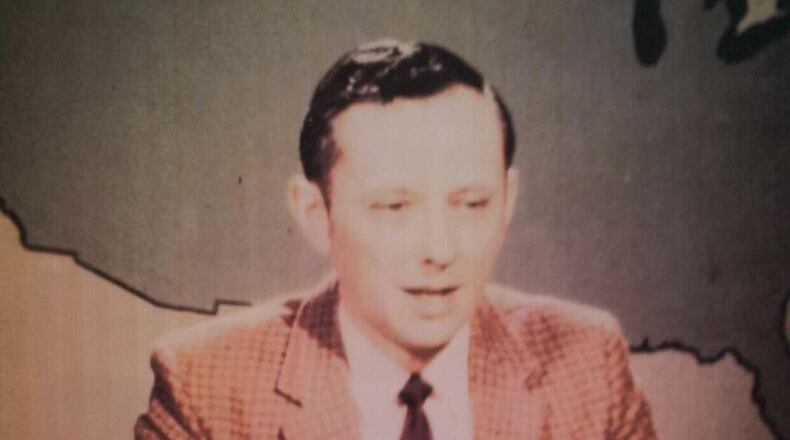Public broadcasting in Georgia is robust in 2021, but it owes that success to a handful of early visionaries who guided its development.
Van Joyner was a large presence in that group, helping grow WABE Radio and WETV (now WPBA) from infancy and later proving instrumental in the formation of what’s now Georgia Public Radio.
Longtime friend and coworker Reva Ezell said that Joyner’s background and personality made him “a good fit for public radio. He was intellect on legs, with very diversified interests. He asked probing questions.”
Analytical, thoughtful and innovative with an appreciation of classical music and cultural programs, he echoed public broadcasting’s tone. An even-keeled personal style kept an outspoken, sometimes-fractious staff on task. Tremendous math ability (he earned an advanced degree in math while summer schooling) enabled pinpoint analysis of ratings and research.
And hiring and nurturing talented people left lasting imprints on the Atlanta landscape.
Van Joyner Jr., 93, of Fairburn, died of natural causes on July 3. He is survived by children Vicki Joyner Price and Mike, Terry and Chris Joyner (an Atlanta Journal-Constitution reporter), 10 grandchildren and six great-grandchildren. Funeral services are set for 2 p.m. on July 17 at First Baptist Church in Fairburn, with burial at the College Park cemetery.
Joyner’s road to public broadcasting started with a childhood newspaper in College Park. A UGA journalism degree and various freelance writing projects came later.
Serving as a math teacher in Fulton County Public schools, he cut his radio teeth writing scripts for WABE’s six hours of school instructional programming — its only role upon its 1948 debut.
But “I got disgusted with how I thought the place was being run,” he said in a 2016 interview.
He turned back to academia but realizing he didn’t want to be a school principal, he rejoined WABE after a few years. Rising through the ranks, he became general manager of both radio and TV by the late 1970s-early 1980s.
Joyner was respectful of the station’s classroom instructional role, but at the same time “he saw how impressive NPR could become,” is how one of his best-known discoveries, classical host Lois Reitzes, put it.
Hours of operation, classical music shows and cultural programming were set up or expanded. Joyner also was among the local public-radio executives who helped plan and develop such NPR mainstays as “All Things Considered” and “Morning Edition.”
As TV manager, he broke new ground by adding “Monty Python’s Flying Circus,” other British comedies and “Dr. Who.”
And to put the operation on a firmer financial footing, he debuted pledge drives — to considerable initial skepticism.
“When he brought it up, people said ‘You’re crazy. You’re not going to get anybody to give you money,’” recalled son Mike. But the drive worked, netting a modest profit.
Joyner also oversaw the tripling of WABE’s power, boosting its broadcast range.
Notable hires included Reitzes, now a cultural cornerstone in Atlanta, and Ezell, who later replaced him in top management.
“He was very perceptive because he knew I was lying (in her job interview) when I told him I knew how to operate a radio control board,” Ezell admitted. “He evidently saw something beyond the lie.”
He also responded to a persistent but perceptive critic of the station not by dismissing him — but by giving him his own radio show.
Joyner was lured from early retirement in the 1980s to help create Peach State Public Radio, now GPB. Colleagues say he persuaded sometimes-reluctant stations to sign on and established repeaters to bring NPR/GPB to unserved areas of Georgia.
Retirement found him pursuing his passion for golf — he played the same course in College Park from boyhood into his 90s — and continuing to taking part in a decades-long Monday lunch-bunch-cum-salon that included Ezell and others. Great issues of the day were discussed along with politics, culture and science.
Son Mike said his father passed along a lesson that in some respects defined his career.
“He taught me not to be afraid to do something or get into something that you didn’t think you knew about or could do. He wasn’t scared to attempt anything.”
About the Author
The Latest
Featured

